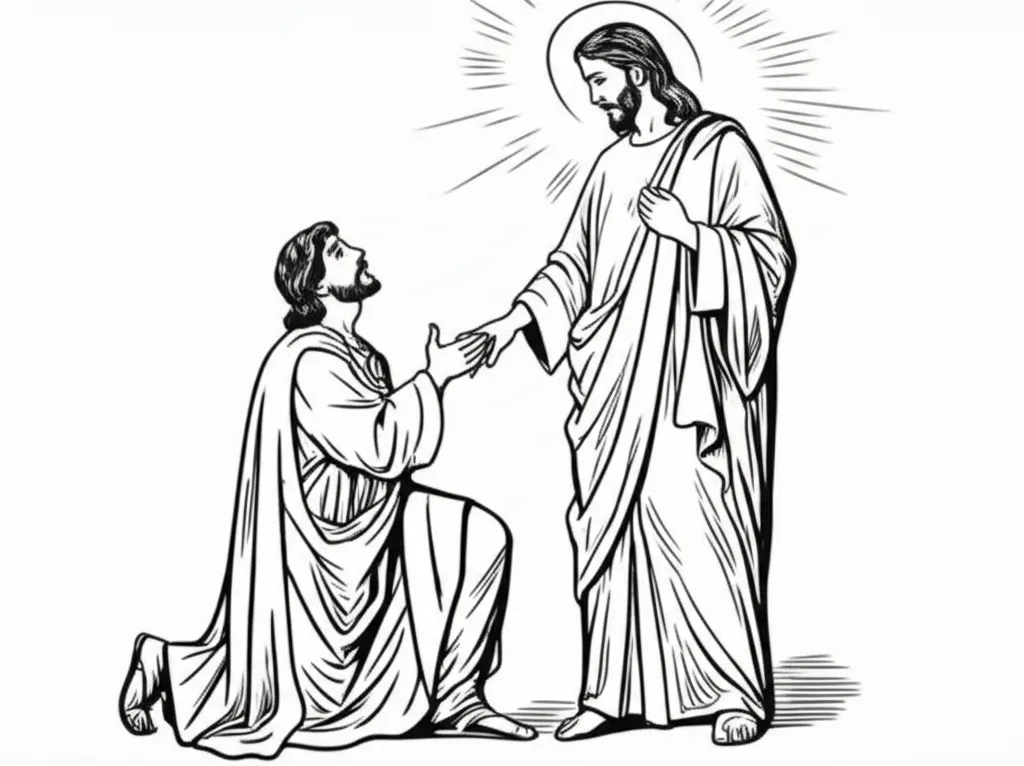Today, as we celebrate the Feast of Saint Thomas, the Apostle, we are invited to reflect on faith, doubt, and the transformative power of encountering the risen Christ. In a world that often demands empirical evidence and tangible proof, the story of Thomas resonates deeply, offering solace and encouragement to those who grapple with uncertainty and seek a deeper understanding of their faith.
From Doubt to Declaration
The Gospel reading from John (20:24-29) recounts the familiar story of Thomas, who was absent when Jesus first appeared to the disciples after his resurrection. Upon hearing their testimony, Thomas declared that he would not believe unless he could see the nail marks in Jesus' hands and touch his side. This moment has often earned him the moniker "Doubting Thomas." However, it is essential to look beyond the doubt and recognize the profound yearning for truth that motivated his skepticism.
Thomas wasn't simply rejecting the possibility of the resurrection; he was wrestling with the immensity of it. He needed a personal encounter, a tangible experience, to bridge the gap between the unimaginable and the real. When Jesus appeared again, he offered Thomas the very proof he sought. In that moment of encounter, Thomas didn't just believe; he professed, "My Lord and my God!" This declaration is a powerful affirmation of Jesus' divinity and a testament to the transformative power of encountering the risen Christ.
The Foundation of Faith
The reading from Ephesians (2:19-22) speaks of the Church as a building, "built upon the foundation of the Apostles and prophets, with Christ Jesus himself as the capstone." Thomas, as one of the twelve apostles, is an integral part of this foundation. His journey from doubt to faith is a reminder that faith is not always a linear progression. It can be a process of questioning, seeking, and ultimately encountering the living God.
The early Church understood the importance of adhering to the teachings passed down by the apostles. This emphasis on tradition and the "rule of faith" served as an anchor in a world of shifting beliefs. Just as a building needs a solid foundation to withstand the storms, our faith needs to be grounded in the teachings of those who came before us, those who walked with Jesus and bore witness to his resurrection.
Blessed Are Those Who Have Not Seen
Jesus' words to Thomas, "Have you come to believe because you have seen me? Blessed are those who have not seen and have believed," are particularly relevant for us today. We live in a world saturated with information, yet often starved for genuine connection and meaning. We may not have the opportunity to physically touch the wounds of Christ, but we are invited to encounter him in other ways: through prayer, through the sacraments, through acts of service, and through the witness of others.
The challenge for us is to cultivate a faith that is not dependent on empirical proof but is rooted in trust, hope, and love. This kind of faith requires vulnerability, a willingness to step beyond our comfort zones and embrace the mystery of God. It calls us to be open to the possibility of encountering Christ in unexpected places and in the faces of those around us.
A Temple in the Spirit
The passage from Ephesians also speaks of us being "built together into a dwelling place of God in the Spirit." This image of the Church as a living temple is a powerful reminder that we are not meant to be solitary believers. We are called to be in community with one another, supporting and encouraging each other on our faith journeys.
Just as different stones are fitted together to create a strong and beautiful structure, we are each called to contribute our unique gifts and talents to the building up of the Church. This requires humility, patience, and a willingness to work together, even when we have different perspectives or experiences.
Living Out Our Faith
The life of Saint Thomas, according to tradition, exemplifies this call to action. After his encounter with the risen Christ, he traveled to India, where he preached the Gospel and established Christian communities. His missionary zeal and unwavering commitment to spreading the Good News serve as an inspiration for us to live out our faith with courage and conviction.
We are all called to be missionaries in our own way, sharing the love of Christ with those around us through our words and actions. This might mean volunteering at a local charity, speaking out against injustice, or simply offering a listening ear to someone in need. Whatever form it takes, our witness should be a reflection of the transformative power of the Gospel.
In conclusion, the Feast of Saint Thomas invites us to embrace our doubts, seek a deeper understanding of our faith, and live out the Gospel with courage and conviction. May we, like Thomas, come to a profound realization of Jesus' divinity and dedicate our lives to serving him and building up his Church.
